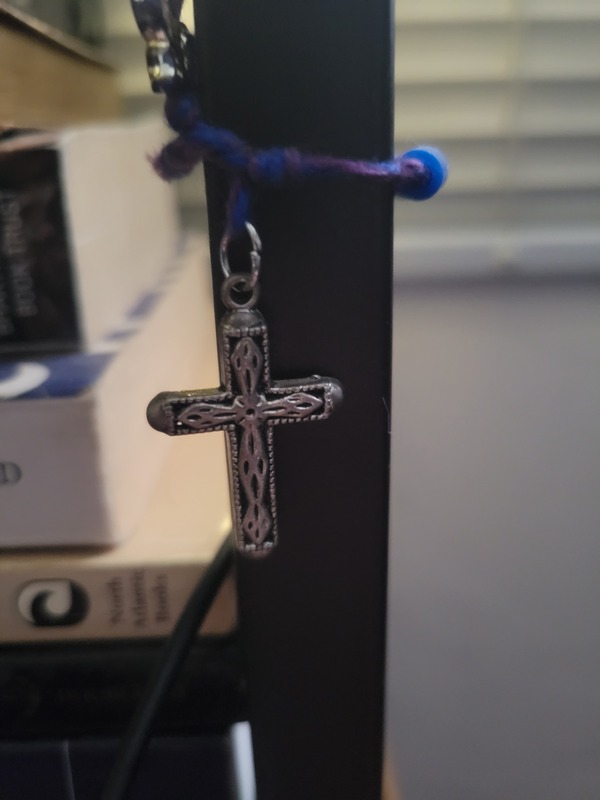Item
Group Homes and the Pandemic
Title (Dublin Core)
Group Homes and the Pandemic
Description (Dublin Core)
To understand my story, I will give some context as to the nature of my work. I worked at a group home made for 14–17-year-olds unaccompanied minors coming from Central America. When they entered the program, they are put into one of the many houses that we currently have and given a room, education, structure, all the things that make for a normal life. These many houses would interact with each other quite frequently, many times, the best friends of one house were in a different house. Many of the kids were in soccer and other sports, they would go to church, and different places in town on a regular basis.
Once the lockdowns began, our program proceeded in a similar fashion to prevent anyone from getting infected. One of those things included stopping the normal interacting between the houses and confine everyone to their own homes. Besides the obvious social loss, school provided them with access to English almost the entire day; to make friends here, they would learn on their own, to meet a boyfriend or girlfriend, they would work at it every single day. You can’t measure what the pandemic took away from these kids. Each one of them is no doubt less fluent in English unless they had actively worked at it, they missed out on getting to know the culture and embracing it for their future, so many things that we can not measure, but without a doubt were lost.
For some though, the pandemic turned into a very good time for learning and becoming better than they were before. Hours would pass very slowly in the house, and you can only watch and play video games so long before getting bored, so one youth found something that they were very good at. This youth would spend his time crafting all sorts of different things. Eventually, his walls were filled with rosaries, charms, bracelets, animals made of beads, and all sorts of other random crafts I could not name. He had a zest for life even during the pandemic and worked hard to keep learning more and more.
The necklace in the picture is one that he had made for me that I hang on my shrine at home. He was a very religious, and it was that religion that helped him get from his home country and make it to the United States. This is a common story for many of the youths in my program, they take religion seriously and try to continue the traditions they had in their home countries. They could not go to Church during most of the lockdown and found other ways to express their religiosity, this is how the youth in my story expressed his.
Once the lockdowns began, our program proceeded in a similar fashion to prevent anyone from getting infected. One of those things included stopping the normal interacting between the houses and confine everyone to their own homes. Besides the obvious social loss, school provided them with access to English almost the entire day; to make friends here, they would learn on their own, to meet a boyfriend or girlfriend, they would work at it every single day. You can’t measure what the pandemic took away from these kids. Each one of them is no doubt less fluent in English unless they had actively worked at it, they missed out on getting to know the culture and embracing it for their future, so many things that we can not measure, but without a doubt were lost.
For some though, the pandemic turned into a very good time for learning and becoming better than they were before. Hours would pass very slowly in the house, and you can only watch and play video games so long before getting bored, so one youth found something that they were very good at. This youth would spend his time crafting all sorts of different things. Eventually, his walls were filled with rosaries, charms, bracelets, animals made of beads, and all sorts of other random crafts I could not name. He had a zest for life even during the pandemic and worked hard to keep learning more and more.
The necklace in the picture is one that he had made for me that I hang on my shrine at home. He was a very religious, and it was that religion that helped him get from his home country and make it to the United States. This is a common story for many of the youths in my program, they take religion seriously and try to continue the traditions they had in their home countries. They could not go to Church during most of the lockdown and found other ways to express their religiosity, this is how the youth in my story expressed his.
Date (Dublin Core)
Type (Dublin Core)
This is a religious cross that was given to me by one of the youths in my program
Controlled Vocabulary (Dublin Core)
Curator's Tags (Omeka Classic)
Contributor's Tags (a true folksonomy) (Friend of a Friend)
Collection (Dublin Core)
Date Submitted (Dublin Core)
04/29/2022
Date Modified (Dublin Core)
05/06/2022
05/23/2022
This item was submitted on April 29, 2022 by [anonymous user] using the form “Share Your Story” on the site “A Journal of the Plague Year”: http://mail.covid-19archive.org/s/archive
Click here to view the collected data.
